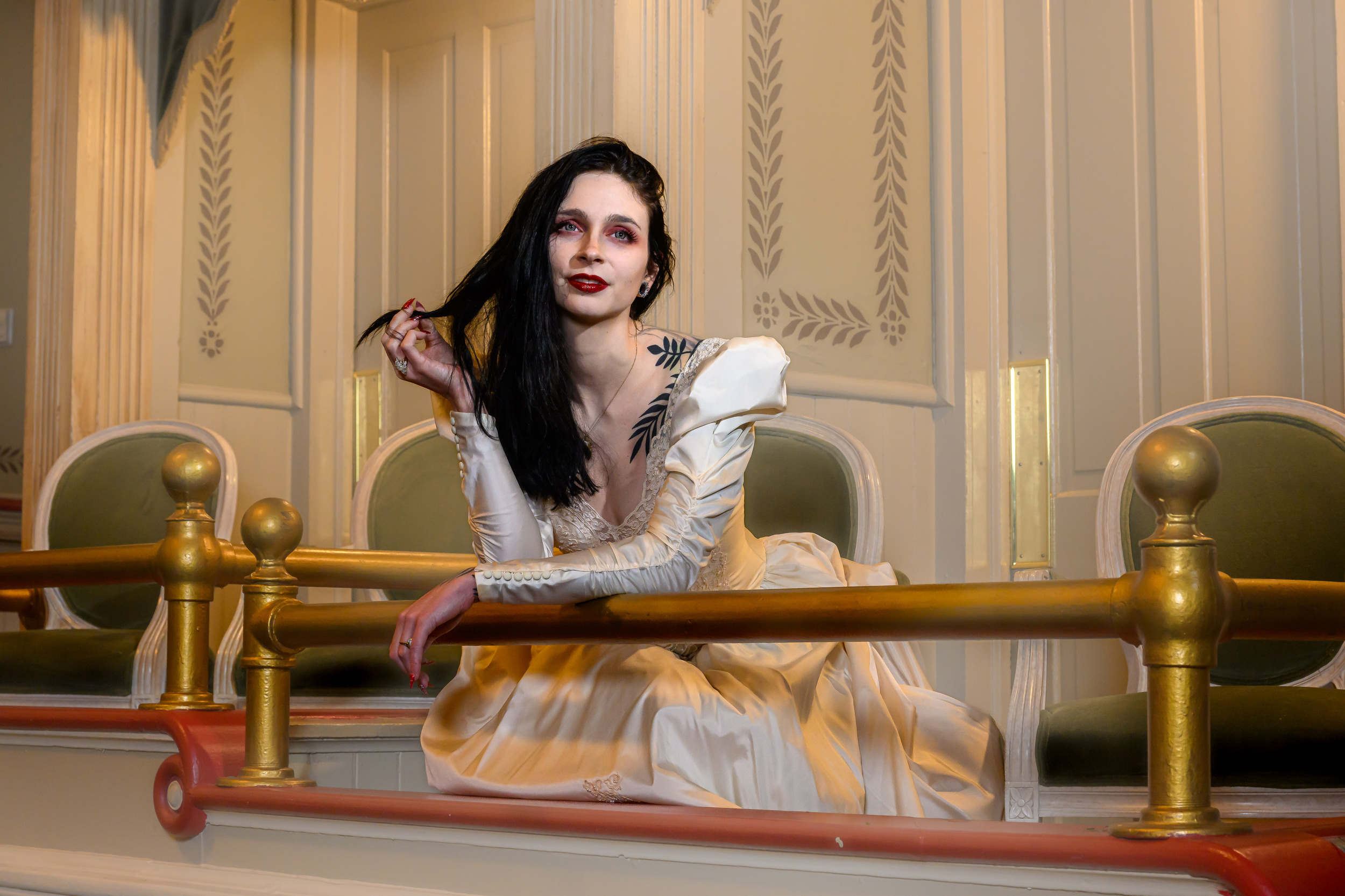Collaborating with fellow creatives is essential for artists seeking to expand their horizons and produce compelling work. Recently, I had the pleasure of photographing my daughter, a professional actress, makeup coach, and dance instructor, alongside her friend, Nova Lux—known in the cosplay community as FlickerSpark—at the historic Springer Opera House in Columbus, Georgia.
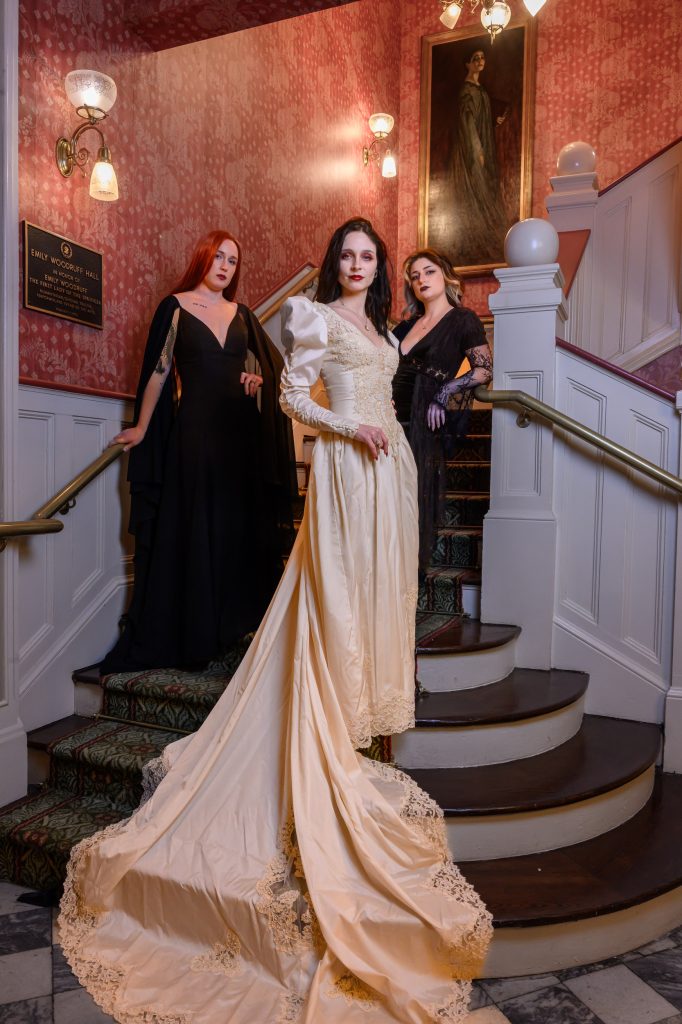
Nova Lux, who goes by @flickerspark_ on Instagram, is a prominent figure in the cosplay scene, captivating over 164,000 followers with her transformative portrayals and engaging content.

The Springer Opera House, established in 1871, has long been a beacon for the arts in Georgia. Its rich history and architectural grandeur provided a dramatic backdrop that enhanced the visual storytelling of our Gothic-themed photoshoot. The theater’s opulent interiors and storied past infused each image with depth and character, demonstrating how a thoughtfully chosen setting can elevate artistic expression.
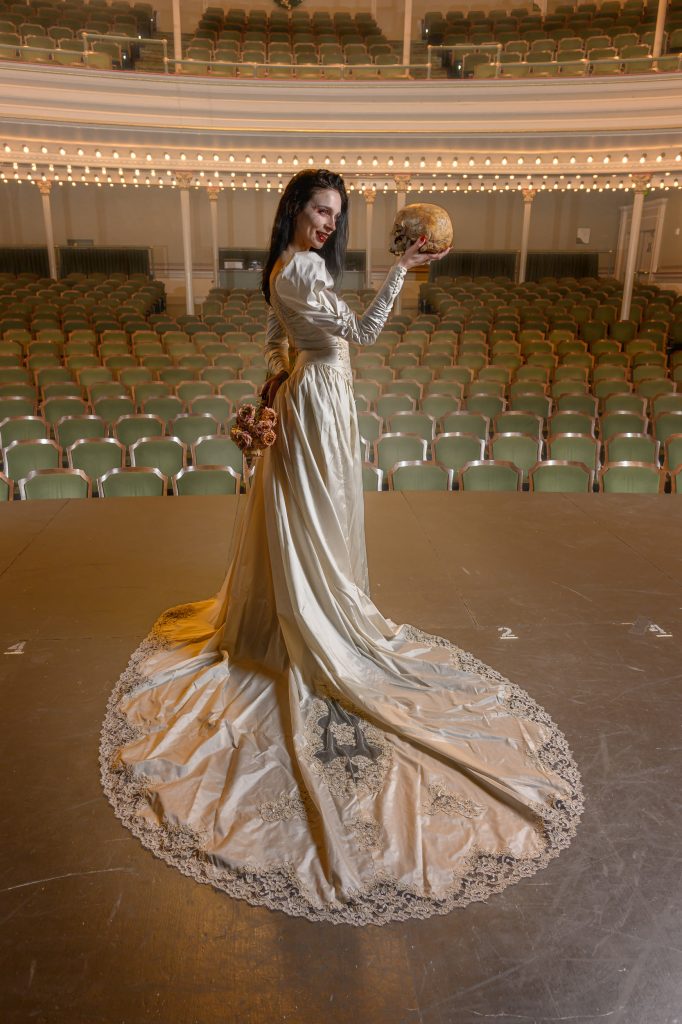
This collaboration underscored the importance of artists coming together to share their unique skills and perspectives. My daughter’s expertise in performance and aesthetics, combined with Nova’s cosplay artistry, created a dynamic synergy that brought our creative vision to life. Working in an inspiring environment like the Springer Opera House further amplified our collective creativity, resulting in impactful images resonating with emotion and artistry.
In the realm of creative endeavors, partnerships like these enhance the quality of the work produced and contribute to personal and professional growth. Engaging with other creatives opens avenues for learning, inspiration, and innovation, reminding us that art is often a collaborative journey enriched by the talents and passions of others.
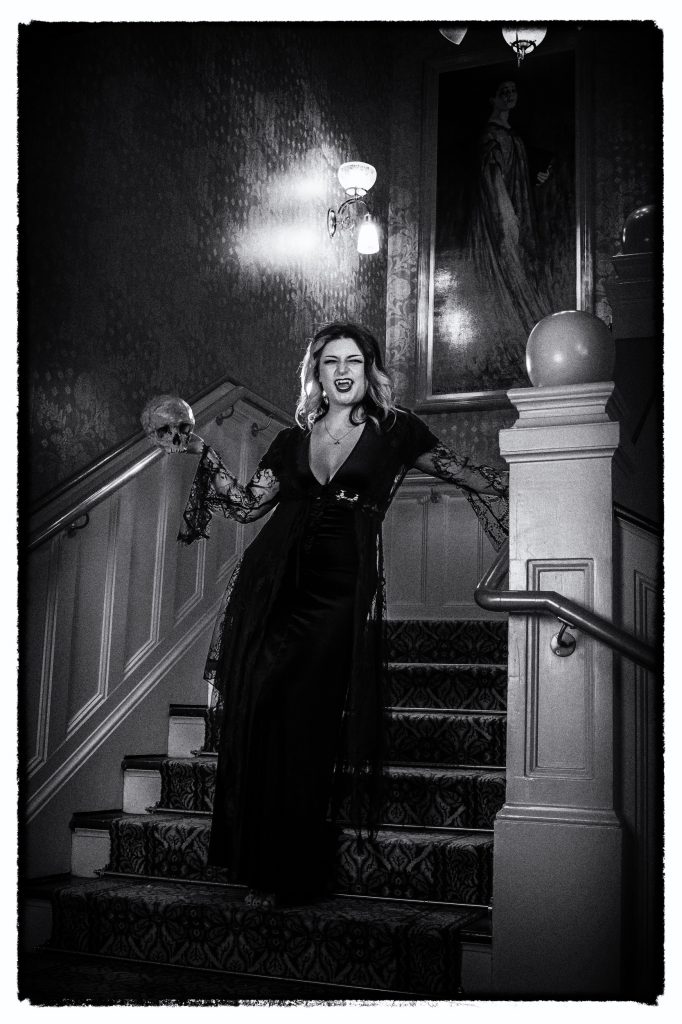
Tips for Collaborating on Personal Projects:
For Photographers:
- Scout the Location
Choose a venue with a story or a unique ambiance, like a historic theater, to add depth and character to your images. - Plan a Visual Theme
Collaborate with your creative team to decide on a cohesive style (e.g., Gothic, vintage, modern) that complements the talents of each contributor. - Communicate the Vision
Ensure all collaborators understand the project’s concept, purpose, and potential audience to align their contributions. - Utilize Lighting Creatively
Experiment with theatrical lighting setups to enhance the drama of the setting and bring your concept to life. - Capture Behind-the-Scenes Content
Document the collaboration process to share the creative journey with clients and fans, showcasing the effort behind the results.
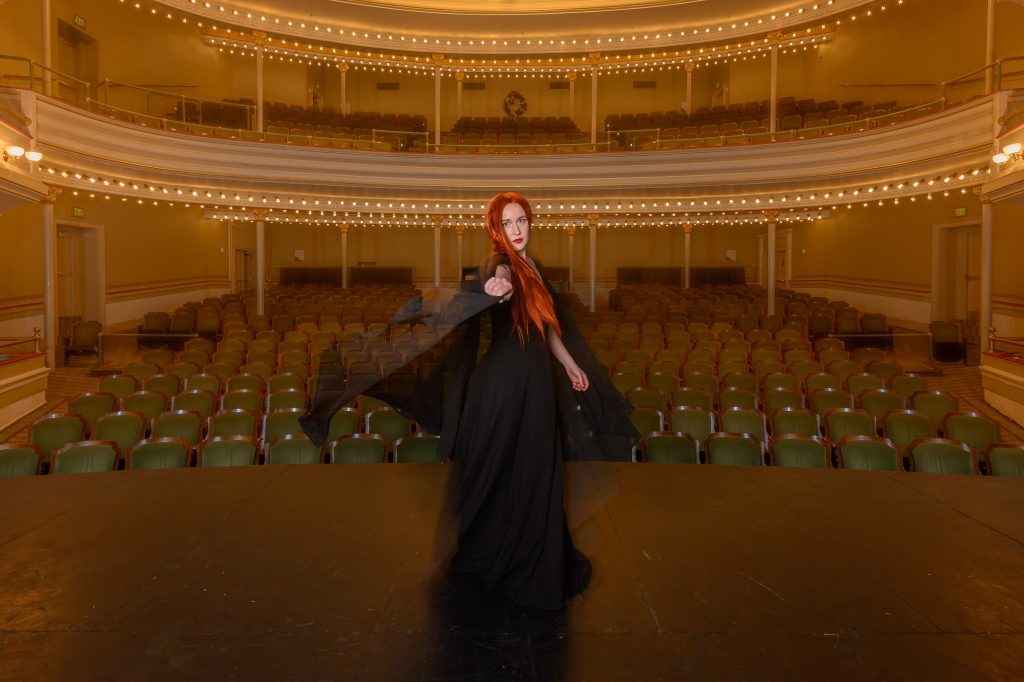
For Actors and Makeup Artists:
- Bring Character to Life
Dive deeply into the theme to visually express emotions and movements that connect with the audience. - Match Makeup to Mood
Use makeup techniques that enhance the atmosphere, whether dark and dramatic, for Gothic or natural, for a minimalist vibe. - Collaborate on Wardrobe
Coordinate outfits with the photographer and other creatives to ensure a harmonious aesthetic. - Be Flexible with Poses and Angles
Take feedback from the photographer to adjust positions or expressions for the best shot. - Share Your Expertise
Suggest creative ideas from your craft (e.g., makeup artistry or acting techniques) to contribute uniquely to the project.
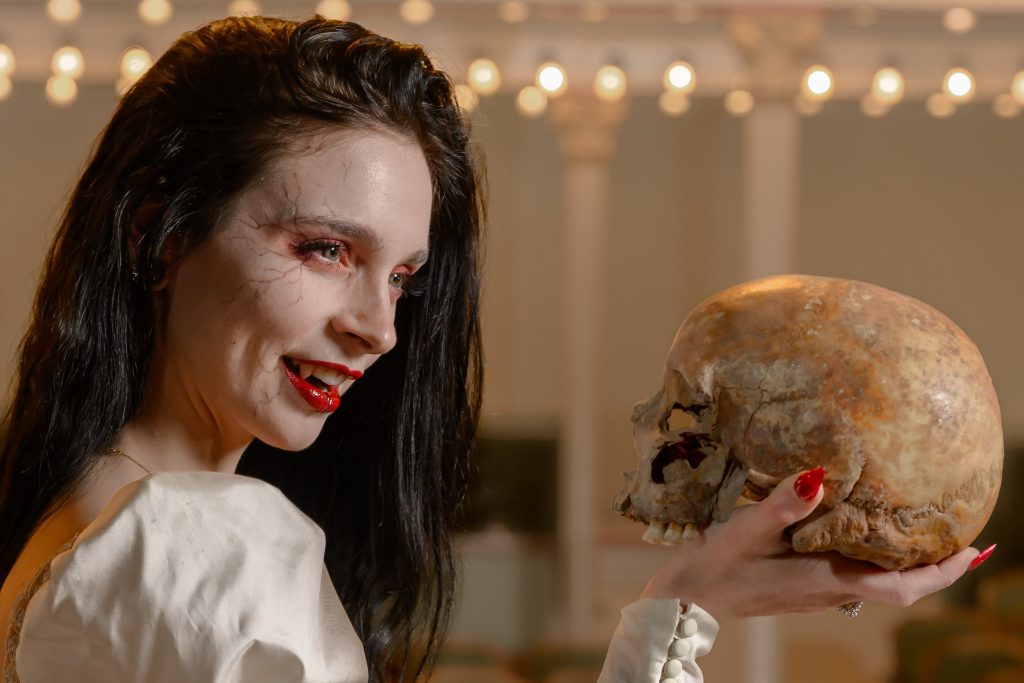
For All Creatives:
- Focus on Storytelling
Ensure every element (lighting, poses, costumes) contributes to a cohesive narrative. - Use the Work as a Portfolio Builder
Showcase the final product as an example of what’s possible for clients looking to create something unique. - Tag and Credit Collaborators
Highlight everyone involved on social media and portfolio sites to expand your reach and build mutual opportunities. - Reflect the Project’s Market Potential
Frame the results to inspire clients to envision how they could apply similar creativity to their projects. - Follow Up with Insights
After the project, discuss what worked well and areas for improvement to strengthen future collaborations.
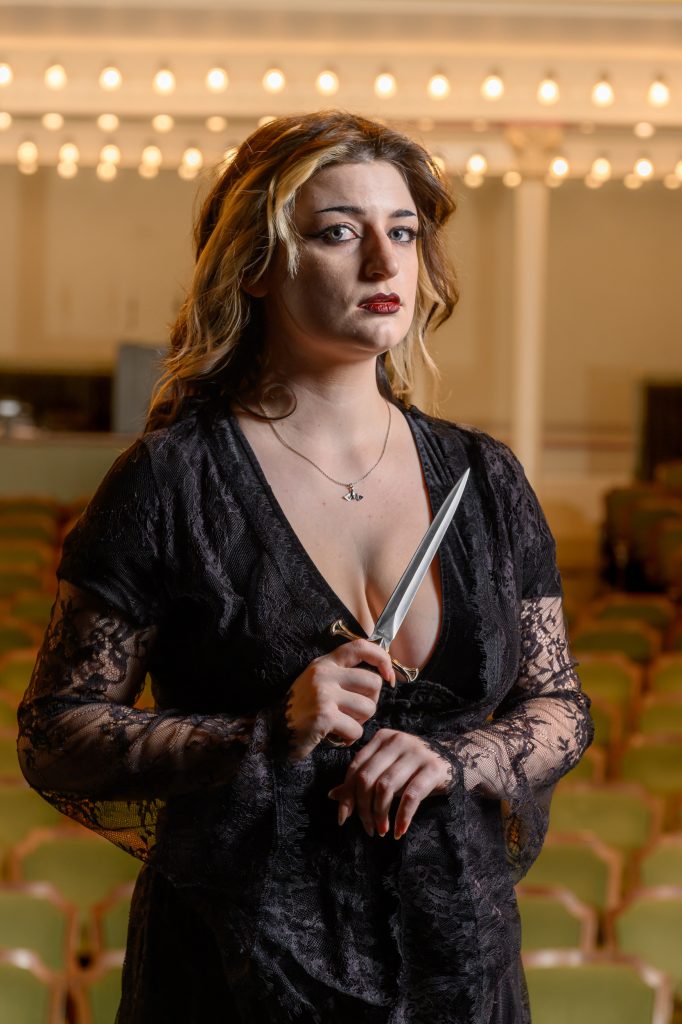
These tips can help creatives see personal projects as a testing ground for their skills and a marketing opportunity for their professional offerings. Collaborations like this inspire clients to dream bigger and believe in the possibilities your team can bring to life.

